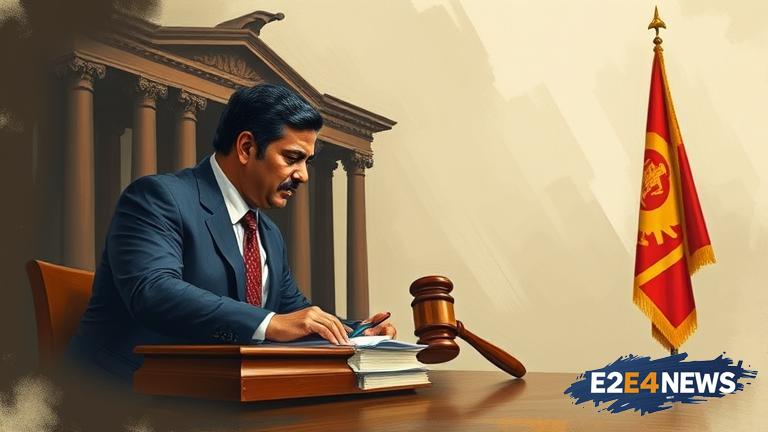The Bar Association of Sri Lanka has condemned a local YouTuber for predicting the outcomes of court cases, stating that such actions undermine the integrity of the judicial system. The YouTuber in question has been using their platform to speculate on the possible verdicts of high-profile cases, which has raised concerns among legal professionals. The Bar Association has argued that such predictions can be misleading and may influence public opinion, potentially affecting the outcome of cases. The association has also expressed concerns that the YouTuber’s actions may be seen as a form of trial by media, where the court of public opinion is used to sway the decisions of judges and jurors. This phenomenon has been observed in several high-profile cases in Sri Lanka, where social media influencers and bloggers have used their platforms to comment on ongoing cases. The Bar Association has called on the YouTuber to refrain from making such predictions, citing the potential harm it could cause to the judicial system. The association has also urged the public to be cautious when consuming information on social media, particularly when it comes to sensitive topics like court cases. Meanwhile, the YouTuber in question has defended their actions, stating that they are simply exercising their right to free speech. However, legal experts have pointed out that freedom of speech is not absolute and that it must be balanced against the need to protect the integrity of the judicial system. The debate has sparked a wider discussion on the role of social media in the justice system, with some arguing that it can be a powerful tool for promoting transparency and accountability. Others have argued that it can be a double-edged sword, potentially undermining the authority of the courts and influencing the outcome of cases. The Sri Lankan government has also weighed in on the issue, stating that it will take steps to regulate social media platforms and prevent the spread of misinformation. The move has been welcomed by the Bar Association, which has long been calling for greater regulation of social media. However, some have expressed concerns that such regulations could be used to stifle free speech and silence critics of the government. As the debate continues, it remains to be seen how the situation will unfold. The Bar Association has vowed to continue monitoring the situation and taking steps to protect the integrity of the judicial system. The YouTuber in question has also stated that they will continue to exercise their right to free speech, despite the criticism. The case has highlighted the need for a nuanced approach to regulating social media, one that balances the need to protect the integrity of the judicial system with the need to promote free speech and transparency. In recent years, Sri Lanka has seen a significant increase in the use of social media, with many citizens using platforms like YouTube and Facebook to express their opinions and engage with others. However, this increased use of social media has also raised concerns about the spread of misinformation and the potential for social media to be used to manipulate public opinion. The government has stated that it will take steps to address these concerns, including introducing new regulations and laws to govern the use of social media. The move has been welcomed by many, who see it as a necessary step to protect the integrity of the judicial system and prevent the spread of misinformation. However, others have expressed concerns that such regulations could be used to stifle free speech and silence critics of the government. As the situation continues to unfold, it remains to be seen how the government will balance the need to regulate social media with the need to protect free speech. The case has also highlighted the need for greater awareness and education about the potential risks and benefits of social media. Many citizens are unaware of the potential risks of social media, including the spread of misinformation and the potential for social media to be used to manipulate public opinion. The government and other stakeholders have a critical role to play in promoting awareness and education about these issues, and in taking steps to mitigate the risks associated with social media. In conclusion, the condemnation of the YouTuber by the Bar Association of Sri Lanka has sparked a wider debate about the role of social media in the justice system. While some see social media as a powerful tool for promoting transparency and accountability, others have expressed concerns about its potential to undermine the integrity of the judicial system. As the situation continues to unfold, it remains to be seen how the government and other stakeholders will balance the need to regulate social media with the need to protect free speech.
